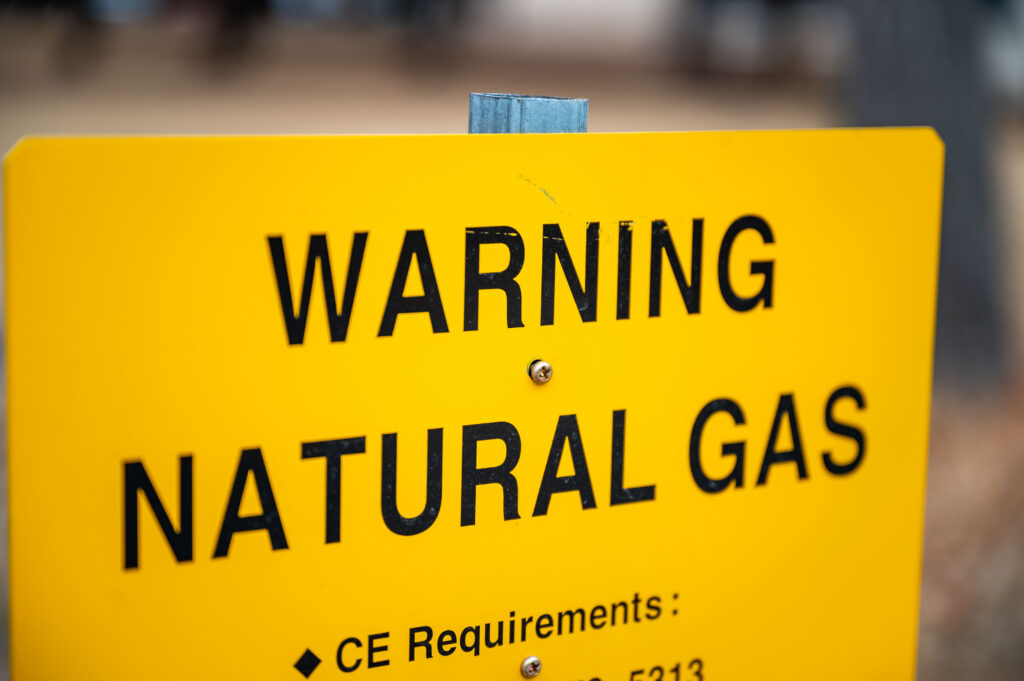A new Maryland policy will put the cost of hooking up new homes to natural gas on the gas utilities that profit handsomely now by passing on costs, writes Emily Scarr. (Photo by Staff Sgt. Steven Adkins/U.S. Air Force)
Earlier this summer, in a major win for Maryland gas customers, utility regulators at the Maryland Public Service Commission (PSC) made an announcement that will save gas customers $1 billion over the next decade.
Each year, gas companies, like Baltimore Gas and Electric (BGE) and Washington Gas, spend hundreds of millions of dollars connecting new Maryland homes to methane gas pipelines. The utility companies charge existing gas customers for some or all the cost of hooking up new customers to their sprawling network of methane gas pipelines through a policy called line extension allowances (LEAs), which is added to customers’ distribution rates.
Who profits from this spending? Gas utilities. These companies profit up to $3 for every $1 they spend hooking up new homes to gas. While corporate executives and shareholders earn substantial profits off this work, they take none of the risk because customers pay for the costs of the pipes plus interest—payments buried in your gas delivery charges on monthly utility bills.
But thanks to the PSC, this is about to change. Under the new rules, gas customers will no longer be on the hook to cover the cost of system expansion. New customers can still choose to connect to the gas system, but will be responsible for the cost of doing so.
Your opinion matters
Maryland Matters welcomes guest commentary submissions at editor@marylandmatters.org.
We suggest a 750-word limit and reserve the right to edit or reject submissions. We do not accept columns that are endorsements of candidates, and no longer accept submissions from elected officials or political candidates.
Opinion pieces must be signed by at least one individual using their real name. We do not accept columns signed by an organization. Commentary writers must include a short bio and a photo for their bylines.
Views of writers are their own.
This commonsense step maintains customer choice, while protecting customers from rapidly escalating costs. According to the Maryland Office of People’s Counsel, ending this practice will save BGE and Washington Gas customers an estimated $150 million annually, and more than $1 billion over the next decade. Maryland is joining states like New York, Colorado, and Massachusetts who are ending gas line extension policies.
Outdated policies like line extension allowances have contributed to gas companies driving up customers’ bills and raking in record profits. In 2025, alone, BGE planned to spend $103.5 million on new gas hookups. After accounting for interest and utility profits, BGE will charge customers $397 million to cover those costs. Meanwhile, Washington Gas’ planned to spend $56.25 million on line extension allowances in 2025, and the company will charge customers $238 million, more than four times the initial cost.
The mounting cost of gas bills has put a strain on Maryland small businesses and families. In BGE’s territory alone, gas rates have tripled from 2010 to 2023, far outpacing inflation due in large part to excessive spending from BGE on gas line extensions, pipe replacements and other capital projects. This spending is a key factor in BGE profits more than doubling from $210 million in 2013 to $527 million in 2024.
The methane gas system also creates serious risk of explosions and puts our health at risk through polluting gas equipment in our homes, which is responsible for more than $1.3 billion in annual health impacts.
We’re grateful that the PSC and elected officials are responding to the gas affordability crisis in Maryland. The PSC decision leaves the choice to have gas in individual customers’ hands, while wisely ending an expensive, outdated policy that is contributing to escalating rates. And earlier this year, the Maryland General Assembly passed bipartisan legislation known as the Ratepayer Protection Act to rein in this gas pipeline spending to prioritize safety and protect consumers.
The Commission’s decision on gas line extension policy is part of a larger proceeding on the future of gas heat in Maryland. In response to rapidly escalating gas utility costs, the Commission is investigating options to protect ratepayers and ensure regulatory decisions align with state policy, and has appointed a Special Master to oversee the formal proceedings, which began on Sept. 16.
We’re hopeful the legislature, governor and PSC will continue to work together to address rising gas utility costs by fully implementing the Ratepayer Protection Act and lower the utilities’ incentive for wasteful capital spending.
Instead of spending billions of dollars on expanding a gas system that locks us into burning polluting fossil fuels far into the future, we should make BGE and Washington Gas address pressing safety risks, stop needlessly raising our gas bills, and start taking meaningful action to transition to more efficient, clean energy homes.
